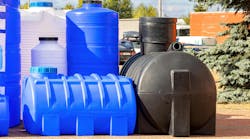Baltimore Agreement Curtails Sewer Overflows
The U.S. Environmental Protection Agency, the U. S. Department of Justice, and the Maryland Department of the Environment announced a proposed modification to a 2002 federal consent decree with the city of Baltimore to eliminate overflows from the sanitary sewer system known as SSOs. The proposed modification establishes additional control measures, and provides more transparency to the public, as well as a new timeline to address the SSOs.
The proposed modification calls for a two-phased approach. Phase I, which is currently taking place, requires Baltimore to address a “significant hydraulic restriction” that impacts sewage flow into the Back River wastewater treatment plant, structural improvements and a series of pipeline upgrades. Phase I, which is designed to control most of the overflows, must be completed by January 2021.
“We anticipate that the work being performed under the initial phase of this agreement will reduce the volume of Baltimore’s current wet weather overflows by about 83% within five years,” said EPA Regional Administrator Shawn M. Garvin. “This modification presents the best path forward to eliminating sanitary sewer overflows, while also providing greater transparency.”
The original consent decree required all work to be completed by January 2016, but it became clear to the parties—due to the hydraulic restriction and other factors,\—additional time and effort were necessary to bring the system into full compliance with Clean Water Act requirements.
Baltimore already has completed many of the actions mandated by the 2002 consent decree including eliminating combined sewers, sewer shed evaluations, eliminating most SSO structures and rehabilitating pumping stations. Baltimore also has paid approximately $1.8 million in stipulated penalties for SSOs that occurred prior to 2016.
"This mandate for clean water and public accountability means less sewage in basements, streets and waterways and more progress for the Chesapeake Bay," said Maryland Secretary of the Environment Ben Grumbles. "Upgrading the sewers and greening the city will improve public health and environmental quality, and that's good news for all of us."
The proposed modification also requires Baltimore to revise its operation and maintenance plan to include regularly scheduled inspections and cleaning of pipes greater than eight-inches in diameter, and to develop a plan to investigate the cause of sewage discharges of unknown origins from sewers. Key new provisions require public notification of sewage discharges through storm sewers and annual public forums for the city to report on the progress achieved under the consent decree.
The modifications will also require Baltimore to be more specific in its Emergency Response Plan to provide notice to the public including location, volumes, water bodies affected, impact on water quality and procedures for posting signs and limiting access to SSO sites.
After Phase I, Baltimore will assess the performance of the completed projects and monitor rainfall and flow in its collection system to develop a Phase II plan, which will be due by December 2022. The modified consent decree requires Phase II be completed by December 2030.
Following the completion of Phase II, Baltimore again will monitor its collection system for two additional years with a final report due in July 2033. If during the monitoring period following completion of Phase II, the agencies determine that the rehabilitation projects did not sufficiently eliminate the overflows, the agencies can require Baltimore to implement additional corrective measures.
Under the original consent decree, Baltimore was required to eliminate any remaining combined sewers in the collection system, eliminate structures for sanitary sewer overflows, conduct thorough sewer shed evaluations and propose rehabilitation measures for each of the city’s eight sewer sheds.
The proposed modification will be open for public comment and requires court approval since it changes the terms and schedule of the original consent decree. The public will have a 60-day period to provide comments on the consent decree modification. All comments will be considered before the court can finalize the modification.
Comments can be submitted by email to mailto:[email protected] or by mail addressed to the Assistant Attorney General at U.S. DOJ – ENRD, P.O. Box 7611, Washington, D.C. 20044-7611.
The Maryland Department of the Environment (MDE) will be hosting the public information session from 7 p.m. to 8:30 p.m. on June 7 at the MDE office located at 1800 Washington Boulevard, Baltimore, MD 21230.
The proposed modification to the consent decree will be available at https://www.justice.gov/enrd/consent-decrees.
Source: U.S. Environmental Protection Agency


